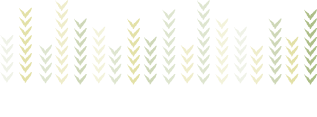ARCHIVE
Vol. 13, No. 2
JULY-DECEMBER, 2023
Editorial
Research Articles
Tribute
Book Reviews
Review Article
M. S. Swaminathan at IRRI
*Former Director for South Asia, International Centre for Research in Agroforestry (ICRAF), VPSingh2020@outlook.com
https://doi.org/10.25003/RAS.13.02.0023
My association with Professor Swaminathan goes back five decades. I worked closely with him after he took over from Nyle C. Brady as Director General of the International Rice Research Institute (IRRI). I soon realised that Professor Swaminathan was a person of extraordinary personal qualities. He was a brilliant and dedicated scientist, an excellent leader, and a human being who was truly kind-hearted. He was soft-spoken, polite and firm; he took decisions after a process of consultation and remained firm once a decision was taken.
Professor Swaminathan was eager that the Philippines have its own rice research programme and his assistance to the Philippines Government in this regard culminated in the establishment of the Philippine Rice Research Institute (PhilRice). An important area of IRRI’s activity been the development of the capacities of national rice research systems. As part of this effort, IRRI trained large numbers of people from all over the world. Professor Swaminathan decided that training would be combined with technology transfer, and established a new Training and Technology Transfer Division (TTTD) at IRRI. After he left IRRI, the Board of Trustees decided to dedicate the building to him, and the multi-storey TTTD is now called the “Swaminathan Hall.”
Professor Swaminathan started a programme on “Women in Rice Farming” at IRRI in order to recognise and study the contributions of women to rice farming. He appointed two senior scientists, Thelma Paris and Bart Duff, and a battery of researchers to run the programme, and invited Bert Pollack, a visiting professor of anthropology from the Netherlands, to assist in designing the programme.
Professor Swaminathan was an advocate of multiple cropping systems and promoted crop diversification at IRRI. He encouraged IRRI scientists to apply the sorjan system from Indonesia, and to use ducks in rice paddies to control insect pests. On the environmental front, Professor Swaminathan started a new programme called the Environmental Laboratory to check pesticide residues in the food chain. He started another programme at IRRI titled “Prosperity Through Rice Farming” with funding support from the Asian Development Bank to develop by-products from rice and rice plants.
Professor Swaminathan also recognised that the low rice productivity in part is due to the existence of adverse soil and hydrological conditions. To address these problems, he initiated a new programme within the Rice Breeding Department of IRRI, and hired D. Senadhira to work on problems of adverse soils and Derk HilleRisLambers to work on problems of deep water rice breeding. The participating countries in the project were Bangladesh, Indonesia, India, Philippines, Sri Lanka, Thailand, and Vietnam. I was a part of this project for ten years as a specialist on problem soils.
In 1984 IRRI decided to hold a full meeting of the Board of Trustees meeting in Iloilo Province, to which I was assigned. The trustees and Professor Swaminathan travelled 110 km from Iloilo City and visited all our sites. We worked at 11 sites under different adverse soil conditions, including mangrove plantation sites, in various towns of Iloilo province. Each participating country conducted experiments that were relevant to the adverse soils that existed in their country. Research continued to be conducted at the Iloilo sites until about five years ago.
On a more personal note, let me try to illustrate the kindness of Professor Swaminathan by recounting two experiences I had. It was an IRRI tradition to hold a seminar every Saturday, followed by coffee in the cafeteria. The seminar was held in Chandler Hall, and Professor Swaminathan’s office was located next to the hall. I was present in one of the Saturday seminars. After coffee was done I saw Professor Swaminathan buying more things to eat, and thought that he may have been intending to stay late in his office. His hands were full, and seeing him try to open the main door to his office, I rushed to help him. Upon my questioning, he told me that there were two women workers in the Radio Room to whom he was taking food because they could not leave the Radio Room.
I was once travelling from Manila to Ghana via Amsterdam on FAO work. It turned out that Professor Swaminathan was on the same aircraft, and our seats were across the aisle from each other on the upper deck. He spoke to me of his own experiences in Ghana and gave me a few ideas and also told me to meet Leticia Obeng, a member of the Board of Trustees of IRRI. After dinner, I pushed my seat back and fell asleep. After few hours, I felt somebody spreading a blanket over me and I saw Professor Swaminathan beside my seat, telling me that the cabin was getting cold and that I needed to cover myself.

